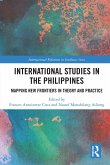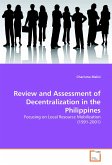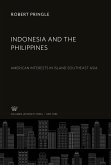The Philippines is the world's largest exporter of temporary contract labor with a huge 800,000 workers a year being deployed on either six month or two year contracts. This labor migration is highly regulated by the government, private, and non-governmental/non-private organizations. Tyner argues that migrants are socially constructed, or 'made' by these parties and that migrants in turn become political resources. Employing a post-structural feminist perspective Tyner questions the very ontology of migration.
Hinweis: Dieser Artikel kann nur an eine deutsche Lieferadresse ausgeliefert werden.
Hinweis: Dieser Artikel kann nur an eine deutsche Lieferadresse ausgeliefert werden.








